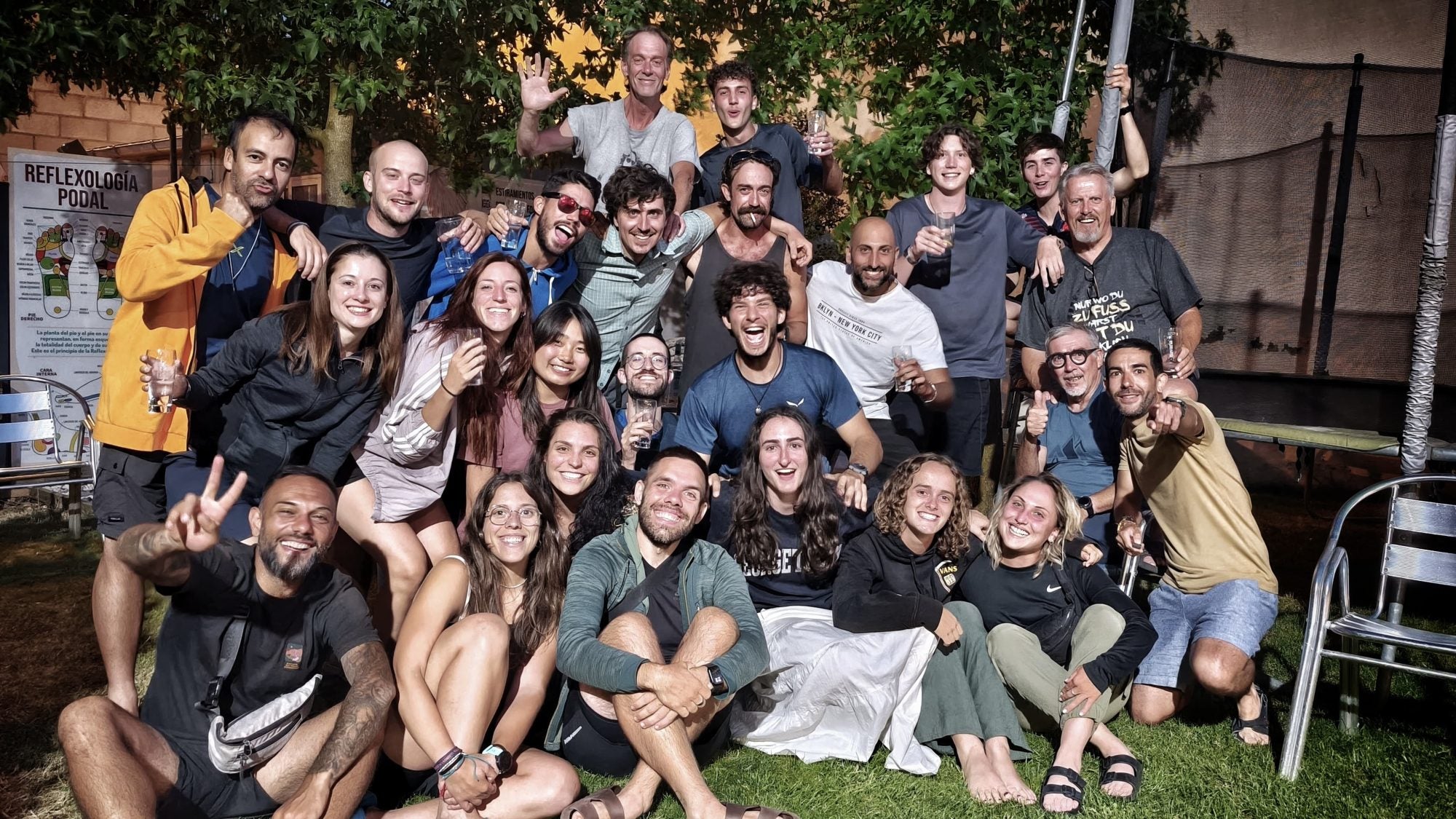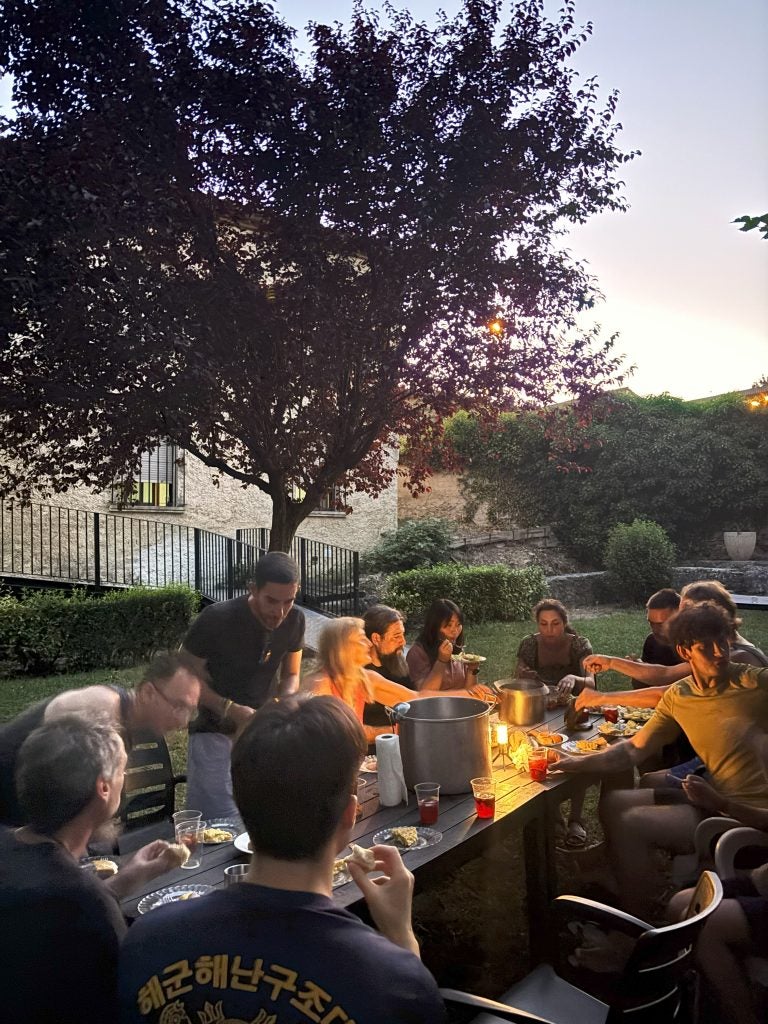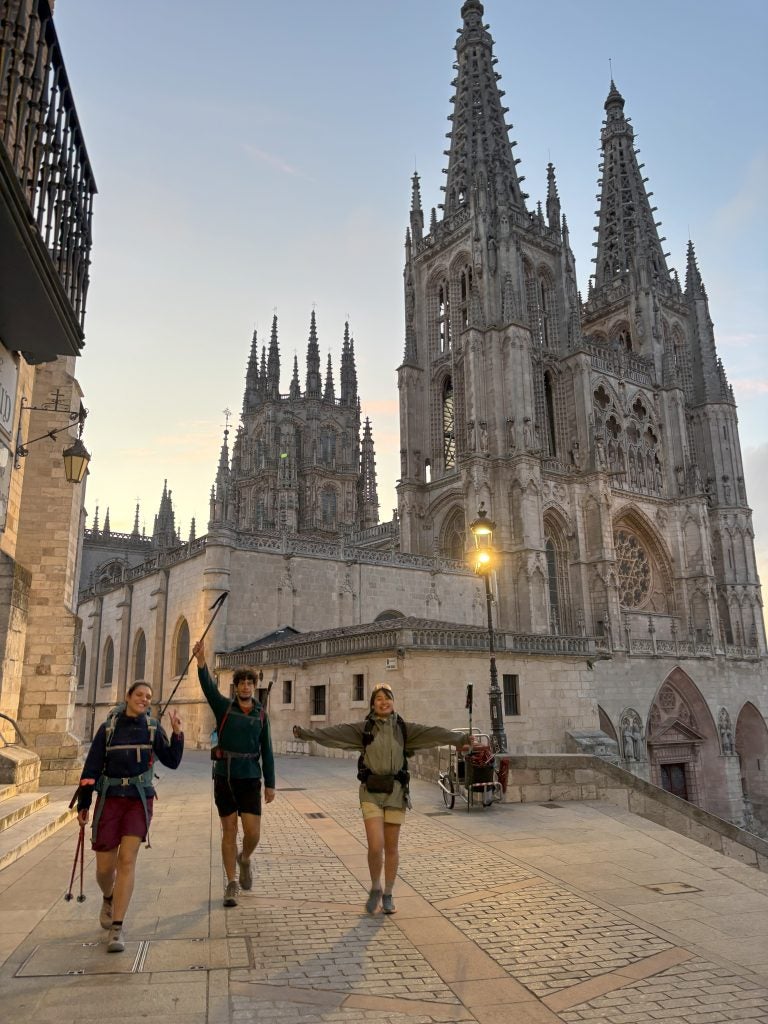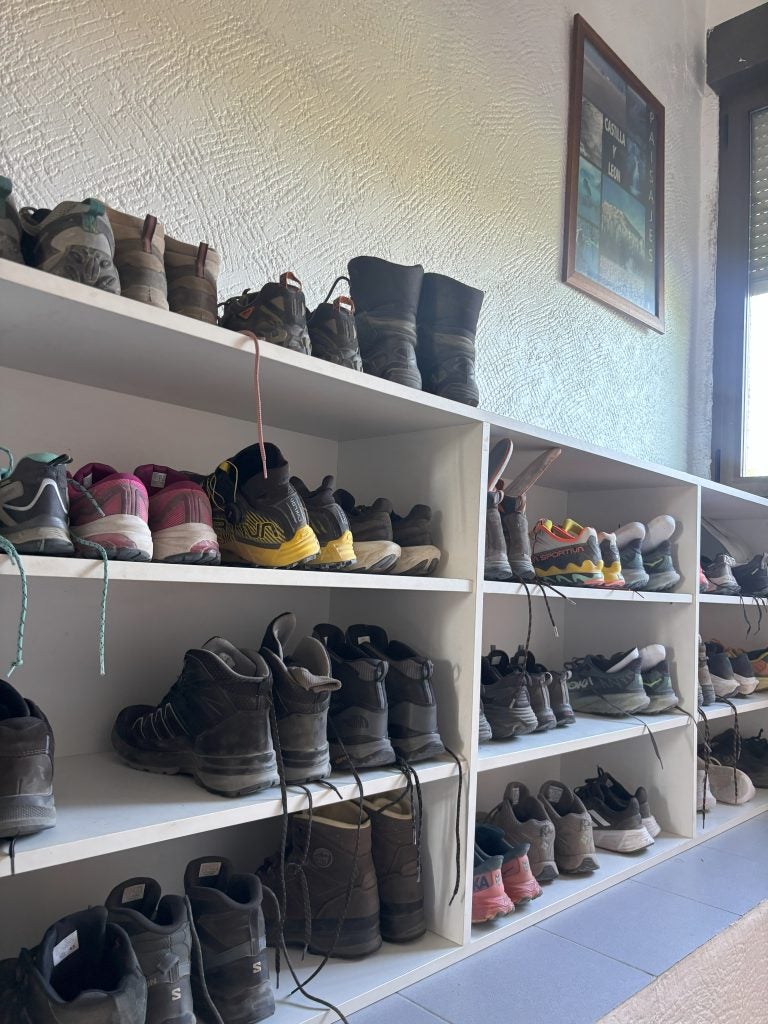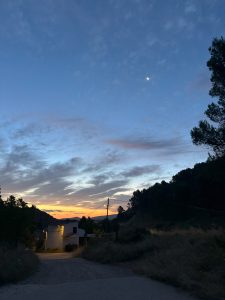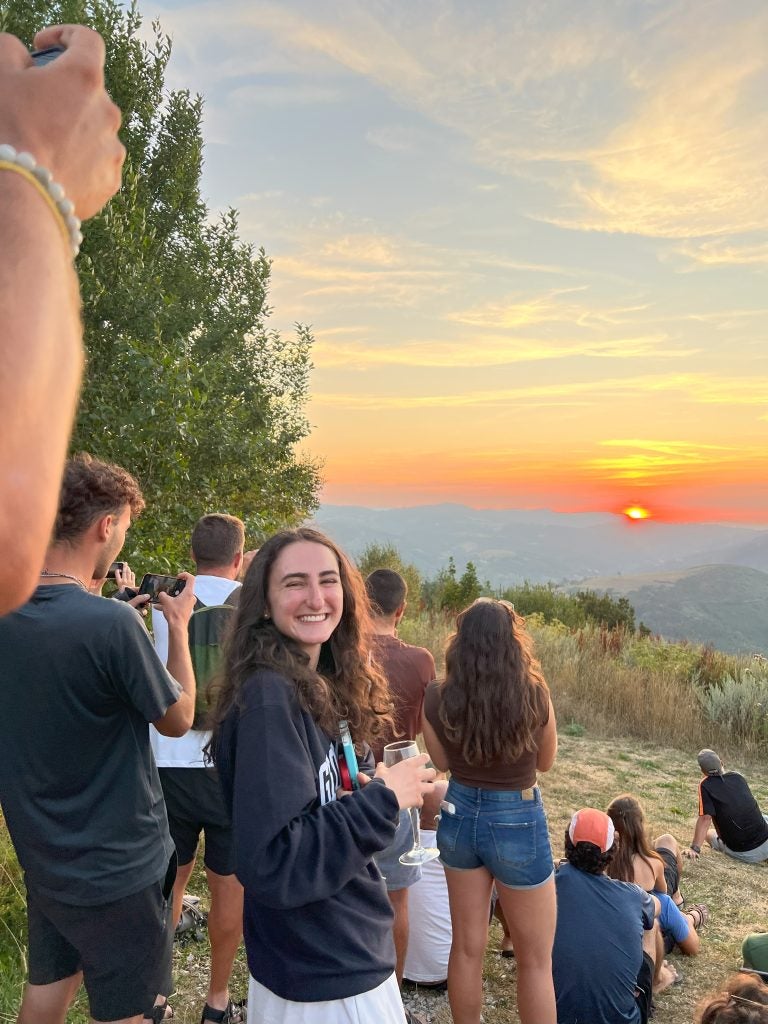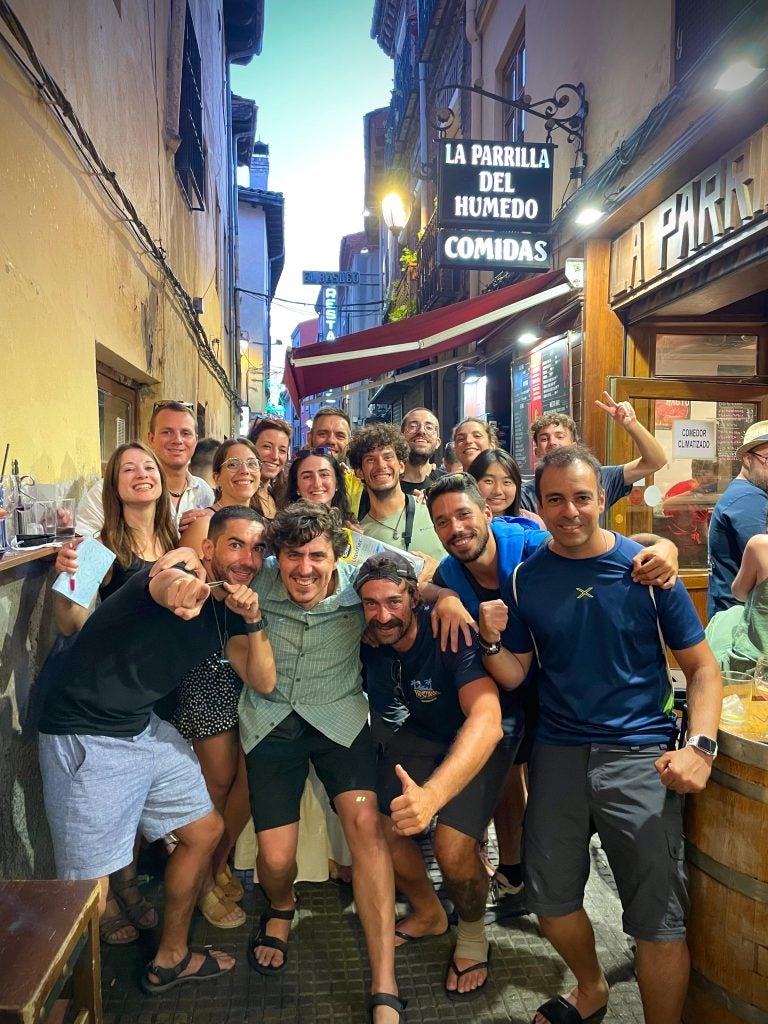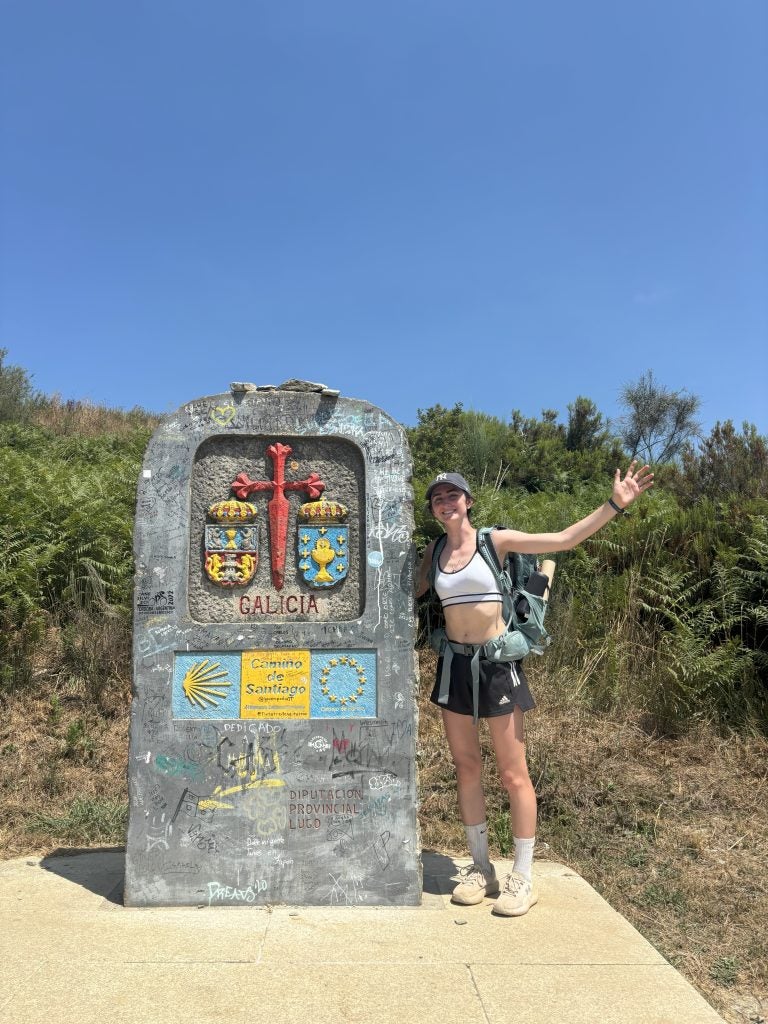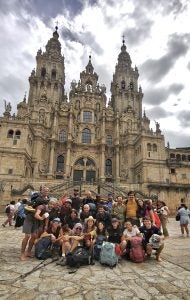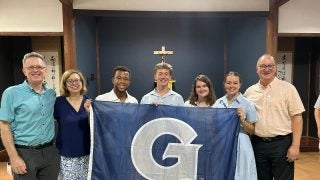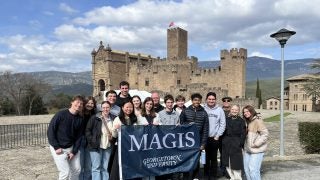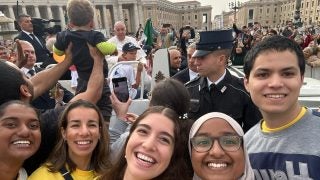Isabela McNeilly-Anta (SFS’27) is a Georgetown Storyteller and junior in the School of Foreign Service studying international political economy with a certificate in international business diplomacy and a minor in French. She is from New Jersey and is spending the fall semester abroad at SciencesPo Paris.
This summer, I embarked on a pilgrimage inspired by St. James the Apostle’s 9th-century mission to spread Christianity. Every year, more than 400,000 modern pilgrims trace one of its many routes — mine wound from St. Jean Pied-de-Port in France across northern Spain to the resting place of St. James’ tomb.
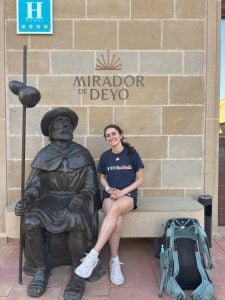
Growing up Spanish-American, I saw the Camino as an adventure people undertook in moments of change. In Spain, it’s a rite of passage — many high schoolers choose it over luxurious vacations before university — and I often wondered what it might be like to join my former classmates.
This spring, as part of a MAGIS Immersion Seminar that studied pilgrimage, I traveled to Rome for the Catholic Church’s 2025 Jubilee: Pilgrims of Hope. I have never felt closer to Christ than I did traveling with my classmates, celebrating Mass in the Rooms of St. Ignatius, or walking through the Holy Doors. I returned with a full heart, ready to center my life around God.
So when I discovered an all-expenses-paid scholarship for young Catholics that January, it felt like a sign. Between my theology class, my Spanish heritage, and my own curiosity about the Camino, I couldn’t ignore the call. I said yes.
